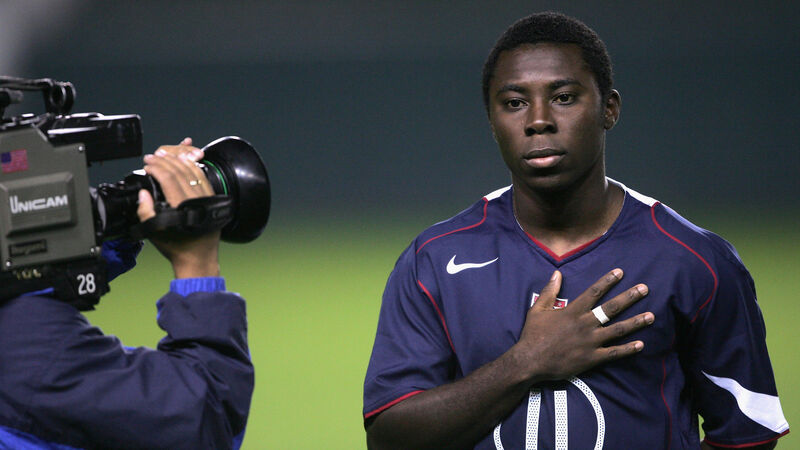Eimear Ryan: Is Freddy Adu a failure because he didn’t live up to our expectations?

Freddy Adu of the USA stands for the national anthem under the watchful eye of a TV camera before the game against Panama during the U20 Men's 2005 CONCACAF Qualifying Tournament on January 14, 2005. The USA won 2-0. Picture: Stephen Dunn/Getty Images
I’ve always been partial to a podcast, but as the world has receded in the past two years, they’ve become an ever more important part of my day. Living with restrictions of varying degrees, we’ve all needed to expand our horizons, however artificially; for me, getting engrossed in a longform story while cooking or doing laundry makes me feel in touch with the wider world. The fact that so many podcasts seem to involve murder — and therefore can be a source of alarm to other members of the household — is the only real downside.









